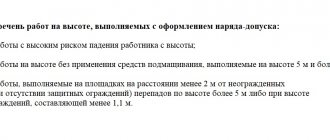Concept and types of guarantees and compensation
In accordance with Article 164 of the Labor Code of the Russian Federation, guarantees are the means, methods and conditions by which the exercise of the rights granted to employees in the field of social and labor relations is ensured.
The guarantees established by law and ensuring the implementation of the rights granted to employees can be both intangible (for example, maintaining a place of work, position, providing another job) and material (preserving average earnings for the period of study leave, annual leave, business trip) in nature.
Guarantee payments and additional payments are often used as guarantees. Guarantee payments are those payments that are made to employees for the time when they actually did not perform their labor duties for valid reasons provided for by law.
As a general rule, they replace the employee’s wages; guaranteed additional payments go on top of wages. Both guarantee payments and additional payments are aimed at preventing a decrease in the employee’s earnings in cases where he is released from performing work duties.
Their difference from wages is that wages are paid as a result of labor, and guarantee payments are not paid for labor, its results, but guarantee payment in cases provided for by law.
All guarantee payments can be classified into types:
Articles on the topic (click to view)
- Do you know what a trademark is and what its meaning is? Definition of concept and types, characteristics and examples
- What to do if your credit history is damaged: how to “rehabilitate” the borrower
- Classification of industrial goods
- What financial guarantee is required for a visa to Italy?
- Fedresurs bankruptcy of individuals
- How does a simplified bankruptcy procedure for a legal entity occur: procedure
- The procedure for dismissing employees in the event of bankruptcy of an enterprise, required compensation and payments
- depending on production or the actions of the manager (payment for downtime due to the fault of the employer, payment for forced absence in the event of illegal dismissal, severance pay upon dismissal);
— ensuring the employee’s right to paid leave (labor, educational, social);
— guaranteed additional payments: to minors for reduced working hours; for certain types of breaks; when transferred to an easier (lower paid) job;
- independent of production, but necessary for the state and society (fulfillment of state duties, participation in collective bargaining, military training, etc.)
Expert opinion
Makarov Igor Tarasovich
Legal consultant with 8 years of experience. Specialization: criminal law. Extensive experience in document examination.
Compensations are monetary payments established to reimburse employees for costs associated with the performance of their labor or other duties provided for by federal law.
Costs incurred by the employee while performing his job duties must be reimbursed to him in the form of cash payments.
In a number of cases, legislation provides for the provision of both guarantees and compensation to the employee, for example, in the case of donating blood and its components.
In addition to reimbursement of expenses incurred by the employee, the law provides for monetary compensation for moral damage caused to the employee (Article 237 of the Labor Code).
A collective or labor agreement may provide for other cases of an employee receiving guaranteed compensation payments in comparison with the law, as well as establish higher amounts of such payments.
Cases of provision of guarantees and compensation. In addition to the general guarantees and compensations provided for by the Labor Code of the Russian Federation (guarantees for hiring, transfer to another job, wages, etc.), employees are provided with guarantees and compensation in the following cases:
- when sent on business trips;
- when moving to work in another area;
- when performing state or public duties;
- in case of forced cessation of work through no fault of the employee;
— when providing annual paid leave;
— in some cases of termination of an employment contract;
- due to a delay due to the employer’s fault in issuing a work book upon dismissal of an employee;
- in other cases provided for by the Labor Code of the Russian Federation and other federal laws.
Thus, combat veterans have the right to free training in new professions at the place of work, in advanced training courses in the system of state training and retraining of personnel, and preservation of wages (in the amount of 100 percent of the tariff rate) at the last place of work during the entire period of training.
Citizens of the Russian Federation who were exposed to radiation as a result of nuclear tests at the Semipalatinsk test site are given an additional payment up to the amount of their previous earnings when transferred for medical reasons to a lower-paid job. This additional payment is carried out by organizations until the ability to work is restored or disability is established.
In cases determined by law, the employer provides employees with:
— guarantees and compensation (for example, when an employee is sent on a business trip, combining work with training, the employee retains his place of work (position) and average earnings for the period of absence of the employee);
- only guarantees (maintaining a job (position) while performing state or public duties). For example, during the period of participation in activities to ensure citizens fulfill their military duty, the employee’s average salary is paid from the funds of the Russian Ministry of Defense.
In a number of cases, the employer provides guarantees, compensation (preservation of the employee’s place of work (position) and average earnings for the period of release from work) and, in addition, the employee receives additional compensation from the federal budget (for example, people's assessors, arbitration assessors) .
When guarantees and compensation are provided, the corresponding payments are made at the expense of the employer. Bodies and organizations in whose interests the employee performs state or public duties (jurors, donors, etc.) make payments to the employee in the manner and under the conditions provided for by the Labor Code, federal laws and other regulatory legal acts of the Russian Federation.
In these cases, the employer releases the employee from his main job for the period of performance of state or public duties.
• Guarantees are the means, methods and conditions by which the implementation of the rights granted to employees in the field of social and labor relations is ensured. Compensations are monetary payments established to reimburse employees for costs associated with the performance of their labor or other duties provided for by federal law.
The responsibility for such payments rests with the employer, and in some cases with those bodies or organizations in whose interests the employee carried out certain actions. In addition to the general guarantees and compensations provided for by the Labor Code of the Russian Federation (guarantees for hiring, transfer to another job, wages, etc.)
d.), employees are provided with guarantees compensation the following cases: • on business trips; moving to work in another area; performance of state or public duties; combining work with training; forced termination of work through no fault of the employee; provision of annual paid leave; %/ in some cases of termination of an employment contract; due to a delay due to the employer’s fault in issuing a work book upon dismissal of an employee;
• in other cases provided for by the Labor Code of the Russian Federation and other federal laws. This list is not exhaustive.
However, the cases of provision of guarantees and compensation included in it are common to all categories of workers. 3 When an employee is sent on a business trip , he is guaranteed to retain his place of work (position) and average earnings, as well as reimbursement of expenses associated with the business trip.
A business trip is a trip by an employee by order of the employer for a certain period of time to carry out an official assignment outside the place of permanent work. Business trips of employees whose permanent work is carried out on the road or is of a traveling nature are not recognized as business trips (Art.
166 Labor Code of the Russian ). When an employee moves , by prior agreement with the employer, to work in another location, the employer is obliged to compensate the employee . expenses for moving the employee, members of his family and transporting property (except for cases where the employer provides the employee with appropriate means of transportation); expenses for settling into a new place of residence. During the performance of state or public duties by an employee in cases where, according to the law, these duties must be performed during working hours, the employer
is obliged to release the employee from work while maintaining his place of work (position). Members of labor dispute commissions (LCC) are given time off from work to participate in the work of the CLC.
At the same time, such workers retain their average earnings. The procedure for dismissal of employees elected to labor dispute commissions is determined by Art.
373 of the Labor Code of the Russian Federation, the main requirement of which is to take into account the opinion of the elected trade union body when deciding on the dismissal of a member of the trade union union. For employees sent for training by the employer or who independently entered educational institutions with state accreditation and successfully study in these institutions, the employer provides additional leave with preservation of average earnings (for passing intermediate certification in the first and second years, for preparing and defending the final qualification work and passing final state exams, etc.
Expert opinion
Makarov Igor Tarasovich
Legal consultant with 8 years of experience. Specialization: criminal law. Extensive experience in document examination.
P.). Guarantees and compensation for employees combining work with study are provided on the condition that they are receiving education at the appropriate level (higher, secondary) for the first time.
According to the general rule established by Art. 178 of the Labor Code of the Russian Federation, upon termination of an employment contract due to the liquidation of the organization or reduction in the number or staff of the organization’s employees (clauses 1, 2 of Art.
81) the dismissed employee is paid severance pay in the amount of average monthly earnings. In addition, he retains the average monthly salary for the period of employment, but not more than 2 months from the date of dismissal (including severance pay).
When the number or staff of an organization's employees is reduced, priority right to remain at work is given to employees with higher labor productivity and qualifications. If labor productivity and qualifications are equal, preference in remaining at work is given to persons in whose family there are no other workers with independent earnings, workers who have received a work injury or occupational disease in a given organization, disabled people, and workers who are improving their qualifications in the direction of the employer without interruption from work. .
When an employee uses personal property with the consent or knowledge of the employer and in his interests, the employee is paid compensation for the use, wear and tear (depreciation) of tools, personal vehicles, equipment and other technical means and materials belonging to the employee, as well as reimbursement of expenses associated with their use. If the employment contract is terminated with the head of the organization, his deputies and the chief accountant due to a change in the owner of the organization, the new owner is obliged to pay compensation to these employees in the amount of not less than 3 average monthly earnings.
Guarantees and compensation in labor law (Article 164 of the Labor Code of the Russian Federation)
Guarantees are a way to ensure that employees exercise their rights in the field of social and labor relations.
Compensations are monetary payments, the purpose of which is to reimburse the employee for the costs that he incurred in the performance of his work duties.
Guarantees and compensation in labor relations are divided into general (when hiring, transferring to another job, for wages, etc.) and special, which are paid in the event of:
- business trip directions;
- moving to another city with an employer;
- performance of state or public duties;
- combining work with training in educational institutions;
- termination of an employment contract through no fault of the employee, etc.
Guarantees and compensation to employees in case of delay in issuing a work book or wages
If the deadline for issuing a work book to an employee upon termination of the employment contract is violated, compensation is the average daily salary for each delayed day. In addition, the employee may be entitled to compensation for moral damages.
Guarantees and compensation to employees for delayed wages are established in the form of monetary compensation, which is paid regardless of the employer’s fault.
Before getting a job, my wife was promised official employment. They even took my work book. Nine years after her dismissal, she was given back her clean pay. Accordingly, there have been no deductions all these years!
What admission gives the employee guarantees and compensation?
Please clarify what you mean by permission.
The opportunity to work for money is guaranteed by the Constitution of our country. For this purpose, general and special legislation has been adopted and is in force, guaranteeing equal conditions for the realization of one’s professional opportunities and skills with further receipt for this of remuneration no lower than that established in the state.
Guarantees and compensation in labor law have their own characteristics, which we suggest understanding in more detail.
What benefits and compensation are provided for harmful working conditions?
The most common benefits and compensation provided for harmful and dangerous working conditions are:
- Reducing working hours;
- Additional paid leave;
- Increase in wages;
- Early retirement.
Moving
Changing jobs with the need to change place of residence is a very common occurrence. And if such a need comes from the desire of the employer (he invited a new employee or the company changed its location), the citizen has some social guarantees:
- providing the employee with a vehicle for moving, or paying compensation for transportation costs;
- compensation for expenses for setting up a new place of residence;
- provision of housing, or compensation for its rental.
It should be noted that such norms must be enshrined in the employment agreement signed by the parties. Additionally, the law provides for the payment of appropriate compensation for the expenses of family members moving with the employee.
If the company's personal transport is used, no monetary compensation is due. It is important to note that if the family decides to move in with the worker not immediately, but after some time (more than a year), the employer may refuse to pay compensation.
Remember, relocation compensation is usually only awarded if the employer himself takes the initiative to find employment in another area. If the employee decides to find a job there on his own, he will be denied such payments.
Distribution of therapeutic and preventive nutrition
Milk helps smooth out the effects of some production factors, so it is given to workers in hazardous industries at the rate of 500 ml per shift. This provision is enshrined in Order of the Ministry of Health and Social Development No. 45n dated February 16, 2009. The Labor Code of the Russian Federation (Article 222) also states that the provision of milk can be replaced by monetary compensation. Its size is calculated based on the cost of the product. Such an “exchange” is possible under certain conditions:
- If this is specified in the employment contract or collective agreement;
- With the written consent and application of the employee;
- If the payment is made every month and is regularly indexed;
- If the amount of compensation is equal to the retail price of milk directly at the location of the enterprise.
Upon termination of an employment contract, incl. reduction
The law determines for all categories of citizens, without exception, certain social guarantees upon dismissal from work. Their list included:
- Opportunity to receive full payroll. The employer is obliged to pay all wages due to the worker until the day of dismissal (which is a working day). This payment is made in full on the last day of work.
- Providing required leave or paying monetary compensation. It is also carried out on the last working day of the worker.
- Certified copies of documents on termination of employment relations, pay slips.
- Receiving proposals from the employer with a list of positions for employment in the event of layoffs. Advance notification of layoffs.
- Payment for periods of incapacity for work that began before the day of dismissal and ended after the end of this procedure. This rule applies only in cases where the employee himself took the initiative to quit.
- A ban on the dismissal of employees at the initiative of the administration (downsizing), during periods when they are on sick leave, on business trips, or vacations.
- The opportunity to be reinstated and receive compensation for the entire period of absence if the dismissal was illegal (proven in court).
Remember, the rights provided above apply to employers of all forms of ownership. The main thing is that the employment is official (confirmed by documents).
Initiative from both sides
When reducing the company's core workforce, preference is given to qualified and experienced employees with greater productivity.
By law, jobs are preserved for:
- Family, with one or more children.
- Single mothers or fathers with a minor child or children.
- Supporting dependent close relatives.
- Citizens who are the only breadwinners in their family.
- Those who have received serious injury, damage, or occupational illness at work.
- Disabled people of the Second World War, battles in hot spots in different regions of the Russian Federation.
- Those who improve their qualifications in their profession at the initiative of the employer without interrupting their main work activity.





